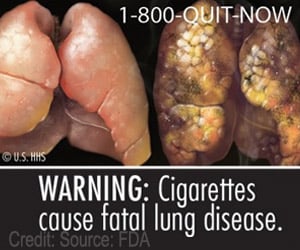The UK could be floating on a sea of alcohol, if one goes by the recent flurry of media reports on alcohol addiction.
The UK could be floating on a sea of alcohol, if one goes by the recent flurry of media reports on alcohol addiction.
Alcohol-related problems are behind more than 20 per cent of admissions to hospital casualty departments – in absolute numbers, it could be approaching a million a year, a rise of 47 per cent in just five years.Most people who drink spirits at home pour well over what they would get in a pub when trying to give a single measure, figures suggest.
The government's Know Your Limits Campaign found that among 600 people tested, the average amount poured was 38ml, compared with a standard 25ml.
And the adults don’t seem to be too very concerned how much of a menace alcohol could pose to their children.
A survey, carried out by the Mumsnet website, found that under-age alcohol consumption was not a major concern for parents of children aged between nine and 16.
They were more worried about issues such as drug taking, traffic accidents and teenage pregnancy.
Advertisement
An audit carried out for the report by St James’s University Hospital, in Leeds, found that 21.8 per cent of all casualty admissions were because of alcohol.
Advertisement
Even if drinkers dramatically reduce their intake the costs of treating the ill-health created will still affect the NHS for the next 10 years, according to the report.
It calls for better identification and treatment of people with alcohol problems, estimating such moves could save the NHS as many as 1,000 bed days a year per hospital.
Currently only 1 in 18 people addicted to alcohol receive treatment.
The report’s authors regretted the country was yet to realize the mounting danger. They also warned that doctors alone could not solve the problem.
“The nation’s growing addiction to alcohol is putting an immense strain on health services, especially in hospitals,” said Prof Ian Gilmore, president of the Royal College of Physicians.
“This burden is no longer sustainable.”
Steve Barnett, the chief executive of the NHS Confederation, said that the NHS could do its bit but warned that “a reappraisal of social attitudes to drinking is also well overdue.” He added: “We hope this report helps to outline the scale of the problems facing the NHS and acts as a warning that if we carry on drinking in the way that we are currently, the bar bill will be paid in worse health and a health system struggling to cope.”
A spokesman for the Department of Health said that the Government was “working harder than ever” to reduce the number of alcohol related hospital admissions.
The warning for home drinkers flowed from tests with vodka, gin and whiskey carried out on 600 people in London, Liverpool and North Shields at the beginning of December.
Adults between 18 and 65, who were regular home drinkers, were asked to pour what spirit measures they would normally pour at home, with or without ice cubes.
When asked to pour how much they thought a single 25ml shot would be, the average amount poured was 38ml, with the highest amount measuring 182ml.
Men poured considerably more than women, 43ml compared with 32ml.
The experiments also suggest that the size of your wine glass really does matter.
When asked to pour the equivalent of one unit into a large (250ml) wine glass, the average amount poured was 157ml - almost exactly twice the correct amount of 76.25ml.
In a smaller wine glass (175ml), it was 131ml, which is still 55ml more than the correct standard measure.
Public health minister Gillian Merron said: "Many of us enjoy a drink, especially at new year.
"But it's easy to get carried away and it's worrying to see just how much more people might be unwittingly pouring for themselves and their friends at home on a regular basis.
"If you want to minimise your risk of diseases like cancer, heart disease and stroke, it's worth paying attention to the size of your measures."
And then there was this warning to parents not to underestimate the "dangerous consequences" of under-age drinking.
The Mumsnet website survey found that only about a quarter of parents talked to their children about the risks associated with alcohol.
And almost two-thirds of parents were not concerned that their children would drink alcohol by the age of 16.
Children's Secretary Ed Balls says parents worried about their children's safety should recognise the connection between alcohol and "risky behaviour".
He counseled parents to make "the link between alcohol and the impact it can have on a young person's safety."
"Research tells us that young people who regularly drink alcohol are more likely to fall behind in school, be involved in road traffic accidents or have unsafe sex," said Mr Balls.
"If parents discuss the link between alcohol and these other issues, they can make sure it's their child making the decisions, not the alcohol."
Earlier this month England's chief medical officer, Sir Liam Donaldson, criticised parents for an over-liberal approach in allowing their children to "get a taste" of alcohol at a young age.
He warned that 500,000 children between the ages of 11 to 15 years will have been drunk in the past four weeks.
Early exposure to alcohol could lead to binge drinking in later life, he said, advising that young people under the age of 15 should drink no alcohol.
Source-Medindia
GPL












